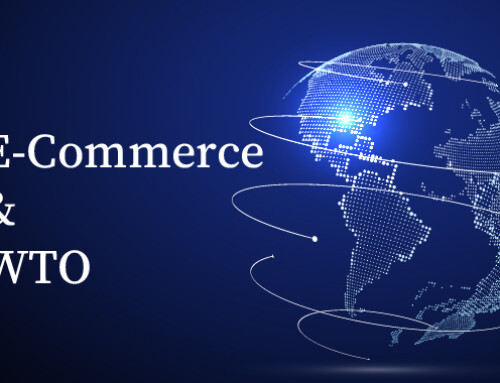Contents
Did you know the average adult spends roughly 3 hours a day on social media? For most of us, social media is a part of our daily routine. Bored? Read funny tweets. Looking for a dress? Go through online shops on Instagram. Want to learn a new instrument? Watch tutorials on youtube. I can go on and on about how different social media platforms have become a part of our lives. But what does this mean for businesses?
As a business owner, every opportunity to reach out to more audiences must be taken. That’s why with the rise of social media, businesses started their online presence and activity. Social media gave marketing a new meaning, and digital marketers started working with businesses to increase their social media advertising. These all happened in the last ten years. With every day passing, social media is becoming more and more important in our daily life decisions.
In this blog post, I will talk about all aspects of social media advertising. We will also cover how to be active on famous social media platforms. So, buckle up!
What Is Social Media Advertising?
Social media advertising is a form of digital marketing that is focused on creative visuals to increase brand awareness. With social media advertising, you have the opportunity to reach out to your target audience on social media. You can test what works best for you. You can also learn how your audience engages with your content. Social media advertising has a quick ROI (return of investment) and instant access to insights. Metrics you should consider while advertising on social media are engagement, reach, likes, comments, and response to CTA (call to action).
Social Media advertising can be a part of a bigger marketing campaign or work independently as a marketing campaign. There are advertising tools on each platform, like Facebook Ads, that you can use. There are also other ways to increase your audience reach and brand awareness.
Creating an Effective Social Media Advertising Strategy
If you are new to this subject, it is crucial to learn how to write an effective social media advertising strategy.
Understand your goals
First, you need to know how and why you want to advertise on social media. Eventually, the ultimate goal is to increase sales. But do you want to increase followers? Send traffic to a specific post or website? Or increase brand awareness? Each ad needs a specific reason to have a collective of successful ads in a marketing campaign.
Know your audience
You need to customize your social media strategy to your audience on each social media platform. Many business owners have an idea of whom they want to be selling to. In reality, the actual customers might differ from the business owner’s idea. You have to understand who is currently following you. Do these people fit into your buyer persona? If not, then why? How does your audience react and engage with your content? Knowing your audience will help you improve your content in a way to increase engagement and respond to CTA.
Choose your platforms and treat them uniquely
Before considering advertising, you have to be consistent with your activity on social media platforms. While consistency is key, you have to understand that each platform has its own unique rules and content audience.
Facebook is a platform you can use to talk about your brand. Twitter is where customers ask questions and require business updates. Instagram and Pinterest are platforms users use for visual inspiration. At last, LinkedIn is the platform you can find like-minded businesses and talents to hire.
Depending on which type of your target audience is active on which platform, you can plan your strategy to treat them uniquely to the platforms.
Creating content and planning a content calendar
After determining whom to target on which social media platform, it is time to plan the content, you want to share in your advertising campaign. You can choose to post pictures or videos, posts or stories, text copies, and blogs. You need a yearly calendar to plan your content ahead. You can have multiple content calendars—for example, one for content, one for paid partnerships, and one for advertising campaigns.
Working with influencers
Micro-influencers can help increase your audience. Businesses are moving away from working with influencers with hundreds and thousands of followers. Micro-influencers have a certain niche market. Based on what content each influencer shares and is focused on, you can find your target market with them and plan an advertising campaign with sponsored posts.
Best Social Media Platform for Social Media Advertising
There are many different social media platforms you can choose from. The most famous ones are the ones you have the best luck of finding your audience on. I will break each one down, and you can choose the most suitable ones based on your business type and desired KPIs.
- Active users: 2.6 billion
- Device: 96% of users use mobile devices
- Average age: 25-34
- Interests: Videos, articles, life updates
- Primary use: connecting with friends and family, news, interesting information
Facebook is a primary social media platform for advertising since it is a wide-reaching platform. Facebook is a platform for every age, with the main ae group focused on 25 to 34. The older generation is the fastest-growing demographic on Facebook. Fun fact? Men use Facebook more than women. The average user clicks on 12 Facebook ads a month. Facebook has its own advertising system and offers a wide range of options for businesses looking forward to advertising on the platform.
- Active users: 1 billion
- Device: Mobile
- Average age: 18-32
- Interests: Photography
- Primary use: sharing photos, following celebrities and inspirational figures
Instagram is the most famous social media platform among millennials. Instagram ads have a high chance of being seen by millions of users. The Instagram feed is a great place to show off your business and catch users’ attention to your content. You can take advantage of the stories on Instagram to talk about behind the scenes and business updates. Instagram offers a range of content creation options, making it possible for brands to connect with their audience. Just like Facebook, Instagram also has an advertising tool that helps businesses promote their content and posts.
- Active users: 330 million
- Device: Mobile
- Average age: 18-29 & 30-49
- Primary use: following celebrities, brands, news
Twitter is another platform with more male user activity. Twitter is the go-to social media platform if you want to connect with a brand directly. In fact, most businesses use Twitter to share updates and news about their activity and provide customer support. It is a suitable platform to connect with customers on a personal level and show that you care. Twitter Ads is the advertising tool for Twitter. You can choose from options offered by Twitter for different means of advertising on the platform.
- Active users: 322 million
- Device: 80% of users use mobile devices
- Interests: DIY projects, recipes, outfit ideas
- Primary use: inspiration
Pinterest is like an online mood board, a visual marketer’s dream. While it might look like it’s not a primary social media platform, there is a lot of potential to use Pinterest if you own a business. Fun fact? 8 out of 10 users have bought products they have seen on Pinterest. This is proof that advertising on Pinterest has a good ROI. 85% of users on Pinterest are women. It is an excellent platform to use if you offer any artistic products or services. Pinterest also has its own promotion and advertising system that allows brands to link pins directly to their website on a target user’s feed.
To Wrap Up
Posting ads on social media is the new renting a billboard. While you might think it’s an extra hassle, it has to be your primary marketing strategy. Advertising on social media has made it possible for businesses, no matter how big or small, to be recognized by their target audience. Business owners benefit from social media advertising to get more brand awareness, promote their new products, and connect and build a relationships with their customers. If you own a business, don’t hesitate, start your social media advertising journey now!
Disclaimer: The content provided on this blog is for informational purposes only and does not constitute legal, financial, or professional advice.







